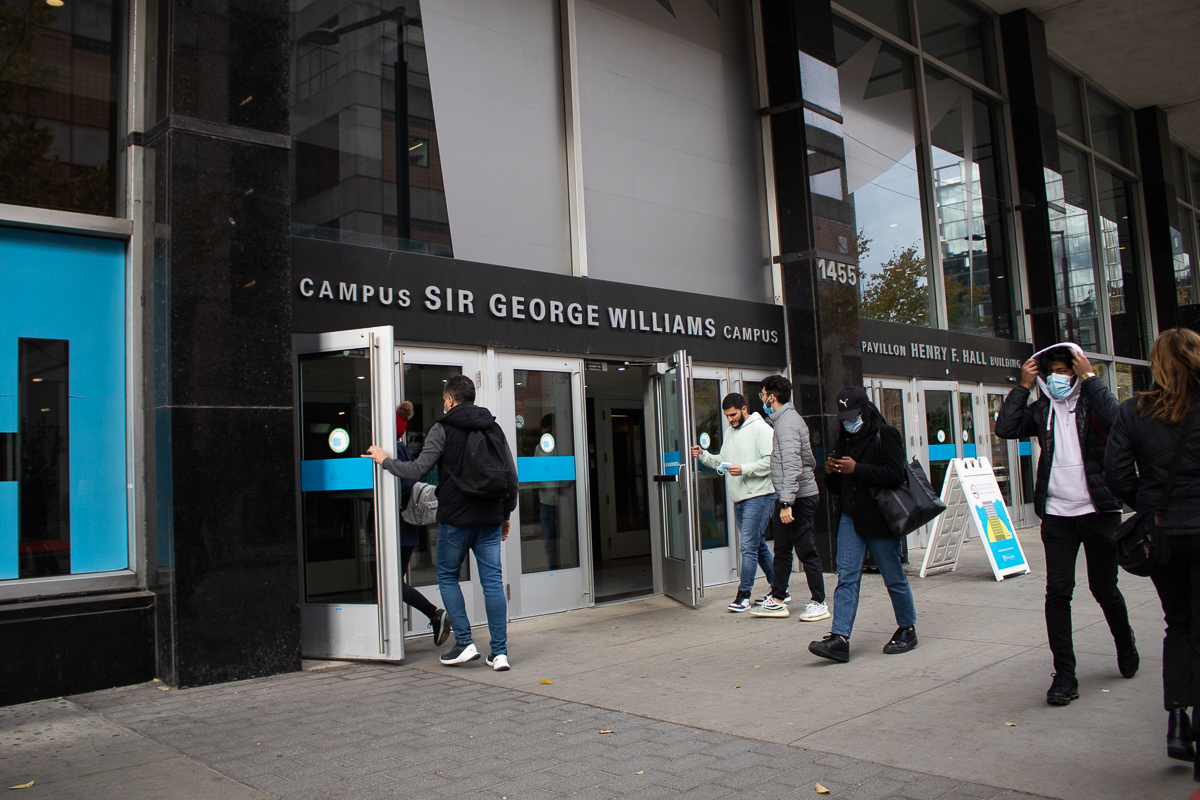We can thank the vaccine passport for Quebec’s high vaccination rates, but now all incentive to get vaccinated is gone. As of March 12, the Quebec vaccine passport is no more in bars, restaurants, movie theatres and more. This means people who chose not to get vaccinated, once incentivized to get the shot by limitations placed by the Quebec government – limitations as recent as January – have no more reason to get their covid immunization.
To be transparent, here’s how I feel about the whole thing.
Even as a pro-vaxxer who feels safer with the shot and boosters, no public incentive will make me drag my feet. So imagine someone who just doesn’t want to be vaccinated – despite the public and personal safety it can bring us, many will never get the shot(s) for a variety of reasons. Some of these reasons should be respected, but the general population should make up the difference, in a way.
This is my opinion — one of many different ones felt on the Concordia campus, as the university dismantled their vaccine mandate. While it was only in place for certain gatherings, sports clubs, the gym and Reggies, our campus bar, students had a lot of thoughts to share.
We went around Concordia’s downtown campus on Friday to ask students how they felt vis-a-vis the return to normality.
Guillaume Sercia, studying Human Environment
I think its a good thing [the vaccine mandate is going away]. At some point we have to come back to reality, to normality. […] It wasn’t a big issue for me, but I was frustrated for the people who couldn’t take part in regular activities. I would feel safe even without a vaccine, so it doesn’t bother me.”
Carles Ngoupeyu, studying accounting
I don’t agree with the vaccine mandate. They didn’t think about the non-vaccintaed. […] You just feel alone, separated from others. Those who are vaccinated will say the opposite because they have access to everything. But when you are not vaccinated, it’s just different. And to feel like you can’t enter a store because you didn’t get a vaccine; feeling like you’re limited in your actions because of a vaccine, it’s just really terrible.”
Nadeem Alhajzein, studying studio arts and art history
I don’t totally agree with the idea of a vaccine mandate being removed. I feel like [the] Quebec government is kind of like, going up and down different rules.”
“But I do understand how it’s supposed to be trying and getting people to go back to normal, I guess. But I still feel like it’s something that should still be at places because it does help us.”
Yannis Affoum, studying for a certificate of Science Foundations
I’m actually kind of happy. It’s very annoying to always have to worry about these things, and always having to show your phone, show your QR code, and all these things… It’s kind of annoying. And for people who dont have a QR code, it’s kind of discriminatory.”
Ahmed Riad, studying electrical engineering
It’s great, people [now] have the choice of taking the vaccine or not, I personally took the vaccine. […] People should have the freedom to take the vaccine or not.”
Marwa Khalid, studying software engineering
I wouldn’t really feel comfortable. Obviously, it’s a really crowded place, there’s a lot of people, and if they are not wearing their mask, you don’t know if they have [COVID], or dont have it, or even if they are facing symptoms. The removal of masks doesnt mean they don’t have COVID. [But] I don’t think it was the university’s place [to implement a vaccine mandate], I think it’s the government that makes that decision, then the university should follow.”
Photos by Catherine Reynolds
